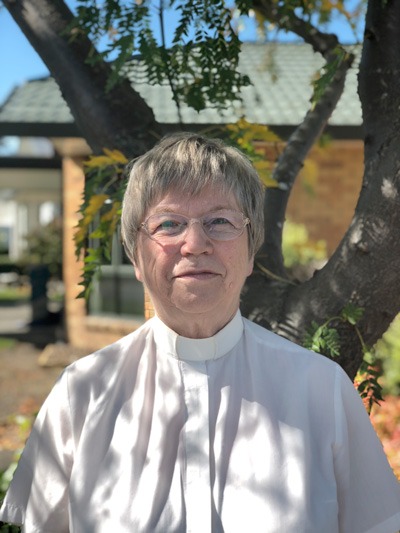Published on 19th of June, 2020

The national lockdown and managing the threat of Covid-19 has affected all aspects of life, including how chaplaincy is provided in aged care and rest home settings.
Chaplain Michael Greer says the lockdown restrictions meant chaplaincy could not be provided as usual at WesleyCare, compelling him and fellow Chaplain Jill van de Geer to create new ways of delivering pastoral care.
“Journeying with people through what can be some of the most troubled moments of their life and providing emotional and spiritual support remained a top priority over this time for Jill and me,” Michael says. “Despite all the challenges and the absence of chapel services, we have visited most residents most days. Over the weeks WesleyCare has been unable to admit visitors, these conversations became increasingly important and often at greater length.”
Chapel services were cancelled under national Alert Level restrictions, providing a necessary buffer between the outside world and the safety bubble protecting WesleyCare residents. Jill notes that this temporary measure called for a creative response.
“It was immediately prior to Holy Week and Easter, one of the most significant weeks in the Church’s calendar. Holy Week and Easter without chapel services seemed very strange indeed,” says Jill.
In place of the usual Sunday and Wednesday chapel services, the Chaplains published a weekly bulletin entitled A Faith for Today themed around the Sunday Bible reading for the week, including reflection and devotional material, which has been widely appreciated.
The cancellation of chapel services also scuppered plans for a service to commemorate ANZAC Day and it too needed to be embraced in the content of that week’s bulletin. Information about radio and television devotional programmes and a Catholic Mass televised each Sunday were also included.
Supporting residents and their families during end of life care was complicated by the lockdown, particularly under Level 4 when visiting was very limited and funerals could not be held. Jill says that other ways of prayerfully acknowledging the end of a life had to be urgently considered and that on several occasions she led a brief service of prayers and family tributes around the bed prior to transfer to a funeral director’s premises.
Reflecting on the challenges of providing pastoral care under lockdown, Jill and Michael note that responding to the personal needs and spirituality of residents remained uppermost for them during this difficult period. Additionally, in many instances during WesleyCare’s lockdown the chaplains helped to maintain the crucial connection between residents and their families.
